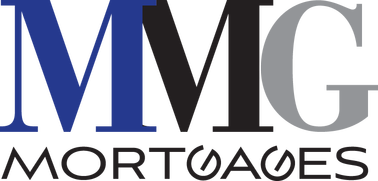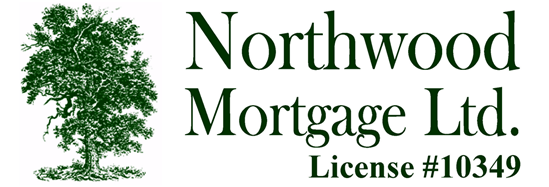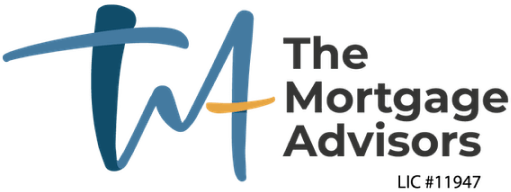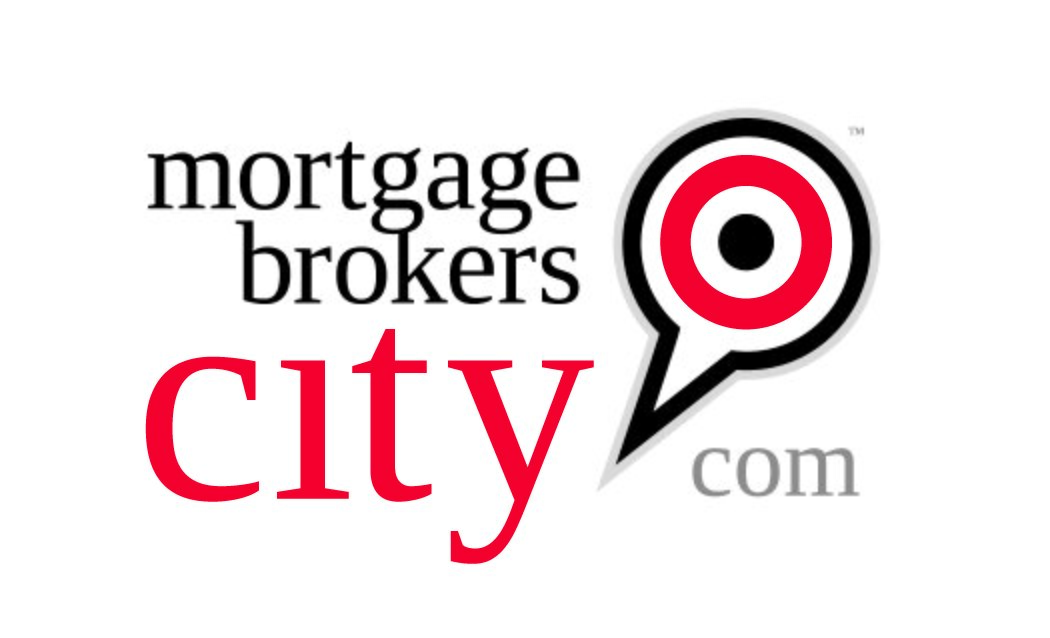Find the Best 5-year Variable Mortgage Rates in Canada
Compare the latest variable rates from major banks, credit unions and mortgage brokers.
Rates are based on a home value of $500,000
Rates are based on a home value of $500,000
Rates are based on a home value of $500,000
Today's Best Mortgage Rates in Canada
Evaluate Canada's best 5-year variable mortgage rates in one place. RATESDOTCAs Rate Matrix lets you compare pricing for all key mortgage types and terms.
Rates are based on an average mortgage of $500,000 and subject to change based on filter criteria.
Updated 04:46 on Jul 12, 2025| Placeholder |
Insured
The rates in this column apply to borrowers who have purchased mortgage default insurance.
This is required when you purchase a home with less than a 20% down payment.
The home must be owner-occupied and the amortization must be 25 years or less.
|
80% LTV
The rates in this column apply to mortgage amounts between 65.01% and 80% of the property value. The home must be owner-occupied and have an amortization of 25 years or less. You must have purchased it for less than $1 million. These rates are not available on refinances. Refinances require "Uninsured" rates.
|
65% LTV
The rates in this column apply to mortgage amounts that are 65% of the property value or less. The home must be owner-occupied and have an amortization of 25 years or less. You must have purchased it for less than $1 million. These rates are not available on refinances. Refinances require "Uninsured" rates.
|
Uninsured
The rates in this column apply to purchases over $1 million, refinances and amortizations over 25 years. More info on the differences between insured and uninsured rates.
|
Bank Rate
Bank Rate is the mortgage interest rate posted by the big banks in Canada.
|
|---|---|---|---|---|---|
| 1-year fixed rate | 4.99% | 4.79% | 4.79% | 5.59% |
5.49%
|
| 2-years fixed rate | 4.04% | 4.34% | 4.34% | 4.54% |
4.79%
|
| 3-years fixed rate | 3.87% | 4.09% | 4.09% | 4.24% |
4.29%
|
| 4-years fixed rate | 4.09% | 4.15% | 4.15% | 4.44% |
4.39%
|
| 5-years fixed rate | 3.91% | 3.89% | 3.89% | 3.91% |
4.09%
|
| 7-years fixed rate | 5.19% | 5.00% | 5.00% | 5.19% |
5.00%
|
| 10-years fixed rate | 5.24% | 5.24% | 5.24% | 5.29% |
6.09%
|
| 3-years variable rate | 4.40% | 4.30% | 4.30% | 4.40% |
6.35%
|
| 5-years variable rate | 4.04% | 4.04% | 4.04% | 4.05% |
4.25%
|
| HELOC rate | N/A | N/A | N/A | N/A |
N/A
|
| Stress Test | 5.25% | 5.25% | 5.25% | 5.25% |
N/A
|
Today's Best Mortgage Rates in Canada
Evaluate Canada’s best mortgage rates in one place. You can compare the most current mortgage rates and monthly payments from 175+ banks and lenders across Canada.
Rates are based on an average mortgage of $500,000 and subject to change based on filter criteria.
| Lender
|
Insured
|
Insurable
|
Uninsured
|
|---|---|---|---|
|
MMG Mortgages
|
3.99%
$2,627.39 / month
|
4.19%
$2,681.85 / month
|
4.14%
$2,668.19 / month
|
|
Mortio Financial Corp
|
3.99%
$2,627.39 / month
|
4.24%
$2,695.56 / month
|
4.14%
$2,668.19 / month
|
|
Northwood Mortgage Ltd.
|
4.14%
$2,668.19 / month
|
4.24%
$2,695.56 / month
|
4.24%
$2,695.56 / month
|
|
Innovation Federal Credit Union
|
4.39%
$2,736.87 / month
|
4.39%
$2,736.87 / month
|
4.39%
$2,736.87 / month
|
|
True North Mortgage
|
2.99%
$2,363.66 / month
|
2.99%
$2,363.66 / month
|
2.99%
$2,363.66 / month
|
|
The Mortgage Advisors
|
3.87%
$2,594.98 / month
|
3.87%
$2,594.98 / month
|
3.87%
$2,594.98 / month
|
|
Nesto
|
3.91%
$2,605.76 / month
|
3.91%
$2,605.76 / month
|
3.91%
$2,605.76 / month
|
|
Hypotheca
|
3.94%
$2,613.86 / month
|
3.94%
$2,613.86 / month
|
3.94%
$2,613.86 / month
|
|
MortgagestoGo
|
3.94%
$2,613.86 / month
|
3.94%
$2,613.86 / month
|
3.94%
$2,613.86 / month
|
|
One Link Mortgage & Financial
|
3.95%
$2,616.57 / month
|
3.95%
$2,616.57 / month
|
3.95%
$2,616.57 / month
|
|
Sudbury Credit Union
|
3.99%
$2,627.39 / month
|
3.99%
$2,627.39 / month
|
3.99%
$2,627.39 / month
|
|
Monster Mortgage
|
3.99%
$2,627.39 / month
|
3.99%
$2,627.39 / month
|
3.99%
$2,627.39 / month
|
|
Northern Birch Credit Union
|
3.99%
$2,627.39 / month
|
3.99%
$2,627.39 / month
|
3.99%
$2,627.39 / month
|
|
The Police Credit Union
|
3.99%
$2,627.39 / month
|
3.99%
$2,627.39 / month
|
3.99%
$2,627.39 / month
|
|
City Wide Financial Corp
|
3.99%
$2,627.39 / month
|
3.99%
$2,627.39 / month
|
3.99%
$2,627.39 / month
|
|
Mainstreet Credit Union
|
3.99%
$2,627.39 / month
|
3.99%
$2,627.39 / month
|
3.99%
$2,627.39 / month
|
|
East Coast Mortgage Brokers
|
4%
$2,630.10 / month
|
4%
$2,630.10 / month
|
4%
$2,630.10 / month
|
|
Mortgage Brokers City Inc
|
4.04%
$2,640.95 / month
|
4.04%
$2,640.95 / month
|
4.04%
$2,640.95 / month
|
|
Prospera Credit Union
|
4.04%
$2,640.95 / month
|
4.04%
$2,640.95 / month
|
4.04%
$2,640.95 / month
|
|
First Credit Union
|
4.29%
$2,709.29 / month
|
4.29%
$2,709.29 / month
|
4.29%
$2,709.29 / month
|
|
First National Financial
|
4.34%
$2,723.07 / month
|
4.34%
$2,723.07 / month
|
4.34%
$2,723.07 / month
|
Jump straight to...
- What is a 5-year variable mortgage rate?
- Why are 5-year variable rates so popular?
- Average 5-year variable rates
- What is the best 5-year variable rate?
- What causes changes in 5-year variable rates?
- Bank of Canada’s overnight rates vs. conventional 5-year rates from major chartered banks
- How do major banks price 5-year mortgages?
- Compare 5-year variable rates
- Pros and cons of getting a 5-year variable rate mortgage
- 5-year variable rate predictions
- 5-year variable rates statistics
- Frequently asked questions about 5-year variable rate mortgages
What is a 5-year variable mortgage rate?
A 5-year variable-rate mortgage, also known as an adjustable-rate mortgage, has an interest rate that can increase or decrease when the prime rate changes during a period of five years.
Typically, this results in a borrower's monthly mortgage payment fluctuating with the changing rate. Some lenders offer fixed-payment variable-rate mortgages, where the monthly payment remains the same, but the amount going towards principal repayment and interest fluctuates.
Financial institutions like banks and mortgage providers use the prime lending rate to lend to their customers. The key overnight rate set by the Bank of Canada influences the prime rate. The key overnight rate is the interest rate banks use to make short-term loans to each other and is adjusted based on economic factors such as inflation.
The rate on a variable mortgage is set at prime plus/minus a discount or premium. For example, it can be quoted as prime – 0.5% or prime + 0.2. Your mortgage rate will increase if the prime rate increases during the term. This will generally mean that a larger portion of your mortgage payment will pay off the interest, and a smaller portion will pay off the principal. The opposite will be true when the prime rate decreases.
Fixed vs. variable-rate mortgage: Which is the right mortgage rate for you?
One of the most challenging decisions for a home buyer is choosing between a fixed-rate and a variable-rate mortgage. In a robust economy, a variable-rate mortgage tends to be lower than a fixed-rate one. However, borrowers who do not have an appetite for risk are discouraged from taking up a variable-rate mortgage. We have seen variable-rate mortgages hovering around the same level as the fixed rates in the last few months.
This year, the Bank of Canada has increased its prime rate a few times to control rising inflation, and the expectation is that the rate is going to increase until inflation falls back to 2% from the current 6.9% (September 2022).
According to a 2020 study conducted by Mortgage Professionals Canada, 72% of mortgage holders (which would equate to 4.45 million out of 6.08 million) have fixed-rate mortgages, 22% (about 1.34 million) have variable-rate or adjustable-rate mortgages, and 5% (290,000) have "combination" mortgages, in which part of the payment is based on a fixed rate and part is based on a variable rate.
When interest rates are expected to rise, you'd likely be better off with a fixed-rate mortgage. This can make sense if you're able to lock in a fixed rate before rates (including variable mortgage rates) start to rise.
Unfortunately, not all lenders are competitive when quoting rates to floating-rate holders wanting to lock in a fixed rate. On the other hand, if mortgage rates are expected to fall, you're better off with a variable-rate mortgage.
How big is the risk?
Another factor is the spread between fixed and variable rates. If the spread between the two is smaller, the risk of going with a variable-rate mortgage might not be worthwhile, and vice versa. It is extremely difficult, if not impossible, to accurately predict interest rate movements, and rates often reflect future rate expectations.
Why are 5-year variable rates so popular?
Top four reasons why some home buyers in Canada prefer a variable-rate over a fixed-rate mortgage:
- Flexibility: A variable-rate mortgage can rise or fall depending on the overnight prime rate change by the Bank of Canada. There are two types of floating rates available to borrowers. The payment is fixed for the full term in a standard variable rate mortgage. As the prime rate rises and falls, so does the percentage of principal you pay down with each payment. Under an adjustable-rate mortgage, the rate and payments change with the prime rate. Lenders are split roughly 50/50 as to which kind of floating rate they offer. Most big banks offer the standard variable-rate mortgage. Smaller mortgage finance companies typically offer adjustable-rate mortgages. In the event of the prime rate decreases, the borrower's monthly mortgage payment reduces as well.
- Lower penalties: If the borrower with a variable rate decides to break the mortgage early, perhaps due to an unexpected life event, job change or the desire to reset to a lower rate, they can do so with very little penalty compared with a fixed rate. Breakage penalties are generally just three months' interest for variable-rate mortgage holders.
- Better savings, historically: As a matter of fact, variable rates can rise and fall depending on the prime rate. However, academic research shows that variable-rate holders generally come out ahead when it comes to interest savings.
- Option to switch to a fixed-rate mortgage: If rising rates make you uncomfortable or threaten your budget, you can convert your variable to a fixed rate. Just be warned, financial institutions aren't known for offering great rate deals to those switching from a variable to a fixed rate mortgage. Moreover, timing a rate lock is extremely difficult, given that bond yields shoot up well before the Bank of Canada begins hiking rates. And rising bond yields lift fixed mortgage rates. If you're thinking you might lock in your variable, pick a lender that advertises very competitive fixed rates.
Average 5-year variable rates
| Year | Average 5-year variable rates |
|---|---|
| 2009 | 2.35% |
| 2010 | 2.45% |
| 2011 | 2.85% |
| 2012 | 2.90% |
| 2013 | 2.70% |
| 2014 | 2.45% |
| 2015 | 2.04% |
| 2016 | 2.25% |
| 2017 | 2.24% |
| 2018 | 2.76% |
| 2019 | 2.80% |
| 2020 | 1.17% |
| 2021 | 1.14% |
What is the best 5-year variable rate?
At the onset of the COVID-19 pandemic, lockdowns and uncertain economic activity in early 2020 prompted the Bank of Canada to lower its overnight rate in order to provide more support to Canada's financial system. As a result, mortgage rates were at historically low levels, which encouraged purchasing activity in the housing market. Variable rates were back below most fixed-rate pricing.
While those savings were initially passed along to borrowers in the form of falling variable rates, they quickly pulled a U-turn and started climbing back up as risk premiums grew. Indeed, soon after the BoC's second rate cut of 2020, most banks and other mortgage lenders began slashing their discounts on prime rates. In some cases, they tacked a premium on top of prime due to growing liquidity and credit risk concerns.
Two years on, the changing economic scenario caused by the aftereffects of COVID-19 outbreaks, supply chain disruptions, and the Russia-Ukraine war continue to dampen growth and boost prices. Global inflation remains high and core inflation measures are increasing in most countries. In response, the Bank of Canada announced a series of exponential rate hikes this year, the latest one being on Sept. 7, 2022, when the central bank increased its overnight lending rate by 75 basis points to 3.25%. With the outlook for inflation looking grim, the central bank believes the policy interest rate will need to rise further.
In Canada, inflation eased in July to 7.6% from 8.1% because of a drop in gasoline prices. The Bank of Canada will keep adjusting the overnight rate until it achieves its target of inflation falling back to 2%.
As a result, the 5-year variable rates are hovering around the same level as fixed rates at this time of the year, which is likely to bring it back in demand for homebuyers in Canada who are willing to take the leap in a down market.
In anticipation of the Bank of Canada's next interest rate announcement, some buyers might be mulling switching from a variable-rate to a fixed-rate mortgage for the fear of higher payments. However, with fixed rates still higher than variable rates, and only a small gap separating the two, now may not be the best time to make the switch. It is likely that fixed rates could peak soon, and locking into a mortgage at a high point could cost more over time.
What causes changes in 5-year variable rates?
Variable rates are based on a set discount or premium relative to the prime rate. And the prime rate typically only changes when the Bank of Canada raises or lowers its overnight lending rate. As a result, variable rates generally take their direction from the Bank of Canada's interest rate policy. The prime rate generally moves higher as good times approach and falls during periods of economic deterioration or crisis.
Over the last two years, COVID-19 outbreaks, supply chain disruptions, and the Russia-Ukraine war have wreaked havoc on the economy. Global inflation remains high, and core inflation indicators are increasing in most countries. In response, central banks around the world continue to tighten monetary policy. In Canada, inflation eased in July to 7.6% from 8.1% because of a drop in gasoline prices. The Bank of Canada will keep adjusting the overnight rate until it achieves its target of inflation rate of 2%. This impacts the variable-rate mortgage payment.
One other key variable-rate driver is risk premiums. The riskier lending gets, the more lenders reduce their discounts from the prime rate. There have even been times in the past when discounts didn't exist. In the financial crisis of 2008, some lenders were charging prime plus 1.5 percentage points for floating-rate mortgages. Albeit changes in risk premiums don't impact existing variable borrowers, only new customers.
Bank of Canada’s overnight rates vs. conventional 5-year rates from major chartered banks
The following are the historical prime rates and conventional 5-year mortgage rates offered by the 6 major chartered banks in Canada.
| Date | Bank of Canada target overnight rate | Average prime rate | Average 5 years conventional mortgage rate |
|---|---|---|---|
| 2012-12-05 | 1% | 3% | 5.24% |
| 2013-12-18 | 1% | 3% | 5.34% |
| 2014-12-31 | 1% | 3% | 4.79% |
| 2015-12-30 | 0.5% | 2.7% | 4.64% |
| 2016-12-28 | 0.5% | 2.7% | 4.64% |
| 2017-12-27 | 1% | 3.2% | 4.99% |
| 2018-12-19 | 1.75% | 3.95% | 5.34% |
| 2019-12-18 | 1.75% | 3.95% | 5.19% |
| 2020-12-30 | 0.25% | 2.45% | 4.79% |
| 2021-12-29 | 0.25% | 2.45% | 4.79% |
| 2022-01-04 | 0.25% | 2.45% | 4.79% |
| 2022-03-03 | 0.5% | 2.45% | 4.79% |
| 2022-04-14 | 1% | 2.7% | 4.79% |
| 2022-06-02 | 1.5% | 3.2% | 5.39% |
| 2022-07-14 | 2.5% | 3.7% | 6.04% |
| 2022-09-08 | 3.25% | 4.7% | 6.14% |
| 2022-10-27 | 3.75% | 5.45% | 6.49% |
Source: Bank of Canada
The data shows interest rates remained untouched during 2021 after Canadian homebuyers witnessed the lowest interest rates during 2020 and a hot housing market. However, in a bid to contain rising inflation, the Bank of Canada has hiked interest rates at least fix times since March this year, slowing down the housing market in the country.
How do major banks price 5-year mortgages?
Banks use a variety of sources to fund 5-year variable mortgages, including:
- Deposits
- Bankers' acceptances
- Mortgage-backed securities
- Canada mortgage bonds
- Covered bonds
- Short-term swaps
- Investor purchases
A blended cost of funds is typically derived from the above sources, and that forms the basis of 5-year variable mortgage pricing. On top of that, lenders try to earn enough to pay staff, sales and marketing expenses, overhead and a small profit (which often amounts to less than 0.5% of the mortgage principal plus renewal and servicing revenue).
Compare 5-year variable rates
No homebuyer should begin the journey of shopping for a mortgage rate without first comparing rates. With free resources such as RATESDOTCA's marketplace of mortgage providers, it's easy to see if you're getting the best rate with the best features.
Even though most Canadians opt for a 5-year fixed mortgage, the fact that 20% of buyers (and often more) take a 5-year variable tells you there are benefits to a floating rate (more on the pros and cons of floating rates below).
Be sure to ask yourself these questions when searching for a variable mortgage rate:
Will you need to break your mortgage early?
A variable mortgage can make the unexpected a little less stressful, whether due to a job relocation or an unforeseen life event. If there's any risk that you may need to break a mortgage before five years, a variable rate is a wise choice, given that it entails lower breakage penalties than most fixed-rate mortgages. Breaking a fixed mortgage early can result in massive costs, as this $15,000 example demonstrates.
Are you risk-tolerant?
If not, a longer-term fixed rate may be a better choice since your monthly payments will remain stable. If you could handle a potential increase in your floating rate and still be able to sleep at night, then a floating rate is worth considering. This applies mainly to adjustable-rate mortgages. As mentioned above, variable-rate mortgages have fixed payments that alleviate payment risk to a large extent.
Do you trust historical data on variable rates?
Historical data shows variable rates typically come out ahead compared to fixed rates. But the choice for borrowers is admittedly harder these days, given how competitive certain fixed-rate terms have become. The spread between fixed and variable rates makes a big difference. Most of the time, the wider this spread, the better your odds in a variable-rate mortgage.
Pros and cons of getting a 5-year variable rate mortgage
The choice of fixed or variable depends on your risk appetite for interest rate fluctuations. When interest rates are low, a variable rate could save you a lot of money. However, if you like knowing your payments will stay the same, regardless of interest rate fluctuations, fixed is ideal. If you find yourself struggling to make a choice, here are the pros and cons of getting a 5-year variable rate mortgage:
Pros
Lower penalties: In the event you find yourself needing to break your mortgage early, perhaps due to an unforeseen life event, job relocation or desire to reset to a lower rate, you'd be glad you have a variable-rate mortgage. That's because breakage penalties are generally just three months' interest.
Compare that to fixed terms, often based on an Interest Rate Differential (IRD) calculation that can result in painfully high mortgage breakage costs.
Historically better rates: Even though variable rates can rise and fall depending on movements in the prime rate, academic research shows that variable-rate holders generally come out ahead when it comes to interest savings.
A built-in failsafe. Should rates start rising to levels that make you uncomfortable or that could threaten your budget, you can generally convert your variable to a fixed rate. Just be warned, lenders aren't known for offering great rate deals to those switching from a variable to a fixed. If you're thinking you might lock in your variable, pick a lender that advertises very competitive fixed rates.
Cons
Fear of the unknown: If you're the type of person who fears rates might double, you're in for some restless nights with a variable. Floating-rate mortgages are made for people who can forget about rates for five years and trust that they'll come out ahead over the long run.
Payment risk: Adjustable-rate mortgages can put a budget at risk. A two-point jump in rates can take monthly payments on a $200,000 mortgage up by over $200 a month.
5-year variable rate predictions
The Canadian economy has been under inflationary pressure and global economic and political challenges since early this year. In Canada, CPI inflation eased in August to 7.0% from 7.6% in July but remained historically high. The Bank of Canada's policy interest rate will continue to rise further to achieve the 2% inflation target.
Should credit concerns ease, it would pave the way for variable rates to trend back lower over time as risk subsides.
But if market worries persist, specifically concerns over liquidity and funding costs, variable rates could remain elevated from where they otherwise would be.
5-year variable rates statistics
Here's a collection of recent stats on Canada's second-favourite mortgage type:
- About 36% of Canadian mortgages were up for renewal in July, when the Bank of Canada delivered a shocking 100-basis-point hike to its overnight interest rate — the biggest increase since 1998. (Source)
- 5% of mortgages in Canada are "hybrid," meaning they are a combination of fixed and variable.
- Of the 30% of variable-rate holders who renewed a mortgage in 2019, only 16% renewed into another variable rate. (Source)
- Those renewing a variable rate in 2019 renewed at a rate roughly 65 bps higher. (Source)
Frequently asked questions about 5-year variable rate mortgages
Learn more about getting a 5-year variable rate mortgage in Canada.
How can I find the best 5-year variable mortgage rate?
The first place to get the lowest and best mortgage rates in Canada is RATESDOTCA. We will help you compare mortgage rates in Canada and quickly provide quotes as you embark on home ownership.
You can also speak with mortgage brokers who are working for you and will bring you the best rates from a variety of competing lenders. They are not employed by lenders and are required to advise and help you find the best mortgage rates in Canada.
Will the Bank of Canada continue to increase mortgage rates in 2022?
High inflation is reining in spending growth in Canada, and by raising interest rates, the Bank of Canada is making it more expensive for households and businesses to borrow money. By late October, the Bank of Canada had increased interest rates six times since March of that year. As a result, the housing market slowed down over this period as interest rate increases directly impact the sector. Those with a variable rate mortgages especially feel the pressure of increasing interest rates.
The Bank of Canada may increase interest rates beyond 3.75% by the end of 2022.
What happens at the end of a 5-year variable mortgage?
If you already have a mortgage and it is coming to the end of its term, it's time to start thinking about renewal options.
Many Canadians simply re-sign their mortgages for another term with the same lender and the same rules. This is convenient, but if you're in this camp, you are potentially missing out on a better deal. Before renewing your mortgage, use RATESDOTCA to see if other lenders are offering a lower interest rate. A lower rate could save you thousands of dollars across a multi-year mortgage.
Quick tip: Never be afraid to negotiate your existing lender's renewal offer. Most mortgage rates are negotiable, even renewal rates.
Can you refinance a 5-year variable mortgage?
You can refinance as long as you have at least 20% equity in your home (though some high-cost, non-prime lenders permit exceptions to this). If done carefully, refinancing can save you thousands of dollars over the course of your mortgage. If you keep the same monthly payment schedule, a lower interest rate means a larger portion of each payment is applied to the principal. This saves you money and potentially shaves years off the amortization period.
Refinancing to tap into your home's equity makes sense if you need the cash for a critical expense or you have high-interest debt and can pay it off with a low-interest loan from your mortgage lender. It is not a smart financial decision to refinance your mortgage for a frivolous expense like going on a shopping spree.




























